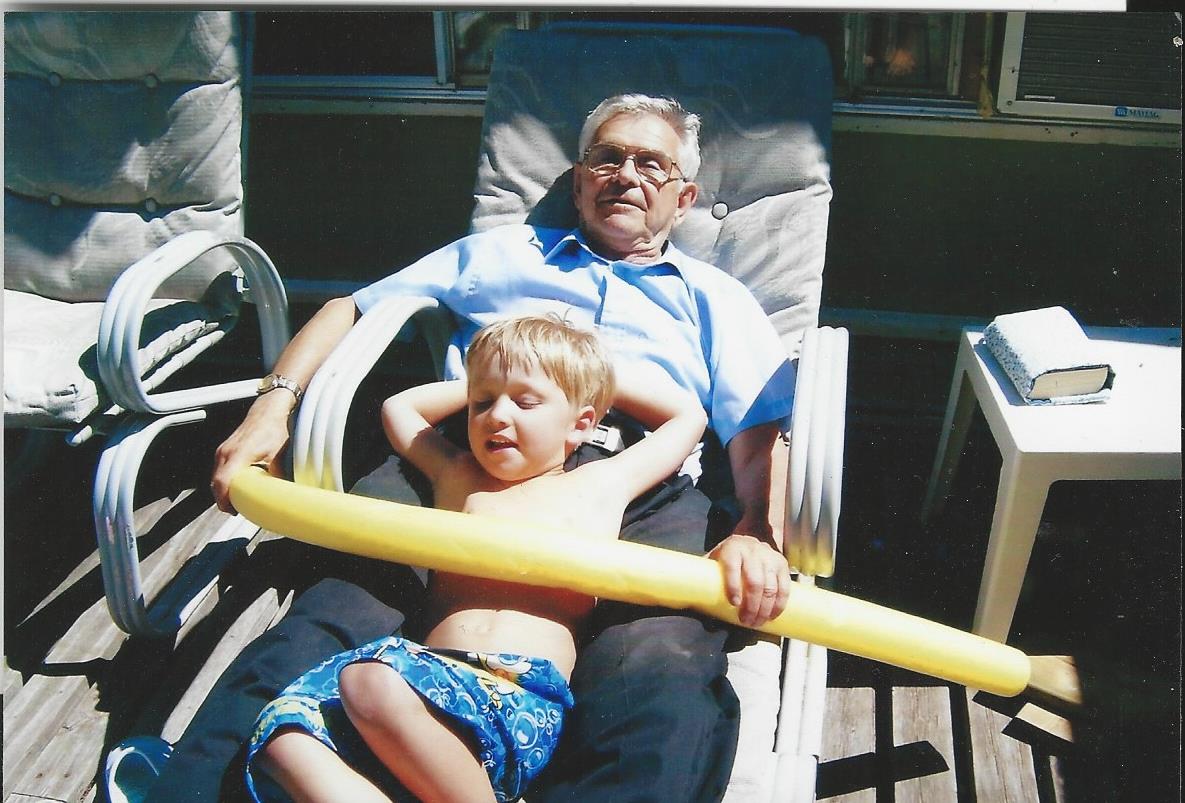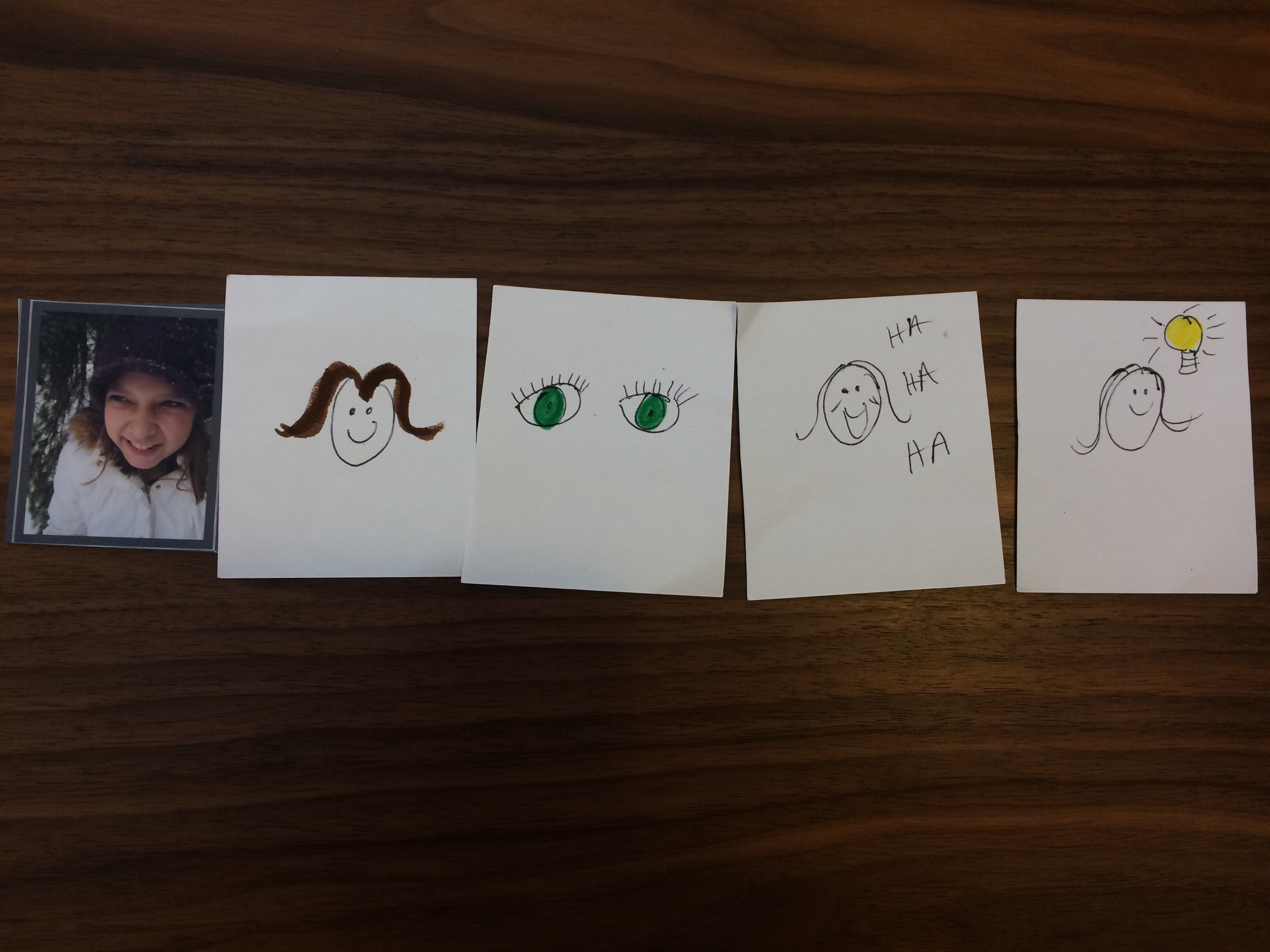
Golden moments
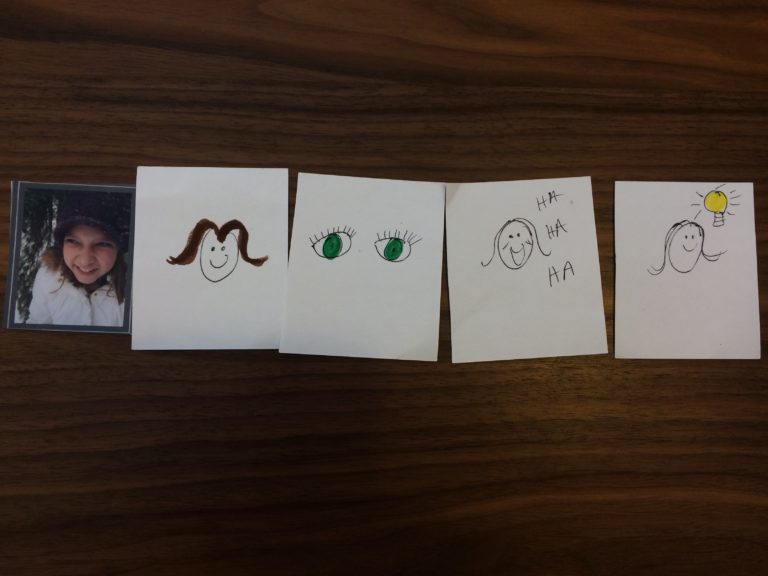 Living with the autism experience is a day to day, moment to moment event. There are moments of really hard, heart crushing experiences. Days where you feel like no one understands your child or your circumstances. And then there are the days where there’s a leap of understanding—your child finally understands something you’ve been working months on, or someone reaches out to your child—those golden moments. When I’m having those crappy days, I try to remember that this experience changes so drastically from day to day, that really, anything is possible.
Living with the autism experience is a day to day, moment to moment event. There are moments of really hard, heart crushing experiences. Days where you feel like no one understands your child or your circumstances. And then there are the days where there’s a leap of understanding—your child finally understands something you’ve been working months on, or someone reaches out to your child—those golden moments. When I’m having those crappy days, I try to remember that this experience changes so drastically from day to day, that really, anything is possible.
One thing that’s been hard for me to figure out in this whole middle school experience is how to negotiate J’s needs with all the classroom teachers and how to help them (and hold them accountable) for the accommodations J needs in their classroom. It’s been hard—really hard. For the most part, they don’t have a problem with J in the classroom, but when it comes to test accommodations or assignment accommodations, it gets complicated just because J is all over the map academically. In some assignments, he understands the concepts. In other assignments, he doesn’t have a clue. So for a standard IEP goal of “J will complete 60-80% of a test or assignment” doesn’t always work.
Since November, we’ve reduced the amount of J’s classes at school but it’s still been a struggle to figure out what is the best way for teachers to meet J’s academic needs. I know the class shouldn’t be centred around J. And I don’t want teachers to do that. But J does need accommodations. Sometimes that means a test needs to be modified and reprinted out with only the sections of material he can be accountable for. Sometimes his assignment sheet needs to be different, and many times that falls on J’s paras or me and Steve to try to figure those things out.
And then last week I had one of those breakthrough moments that pop up from time to time. J’s French teacher reached out through email asking about accommodations and last week we met afterschool to talk about what French should look like for J. Throughout the year, this teacher has done a great job of reaching out to us—and understands that we as parents realize that J will not be a proficient French speaker. He’s not a proficient speaker in his native language—English.
We’ve talked before about his number phobias and how her class just happens to take place during the time 2:47 and how it’ sometimes a crap shoot whether he can handle his anxiety over the number which sometimes results in him missing her class. I explained to her J’s experiences with World Language Survey last year (how he got an A in that class with almost no accommodations), I explained that J is really great at memorizing vocab, and that he really struggles putting multiple words together, which is what French this year looks like, because he really struggles putting more than 5 words together in a sentence. I showed her our strategies at home, of trying to make everything visual, and how I’ve found a way to help him visually put a sentence together.
Through our conversations, she was able to look at his last test and come up with ideas to help modify his tests in the future. She even came up with an idea for a worksheet for J to list a few French sentences and have him draw a picture of what the sentences create and offered to make a sheet every week to help him visualize the language. She even played around with ideas on how we can use French to help J practice English better, suggesting that we practice putting the sentences together in English first before we put them in French. For example, “My sister has long brown hair, green eyes, and is funny and smart.” or “I have blond hair, blue eyes and am athletic and awesome”—way more than the 5 word sentences J traditionally uses. My heart almost melted when his teacher said, “I think it would be wonderful if J could attach real meaning—attach his thoughts into meaningful words and sentences to spontaneously describe the world around him, to really notice and pay attention to the world around him and talk about it—in English and at whatever level he can in French.”
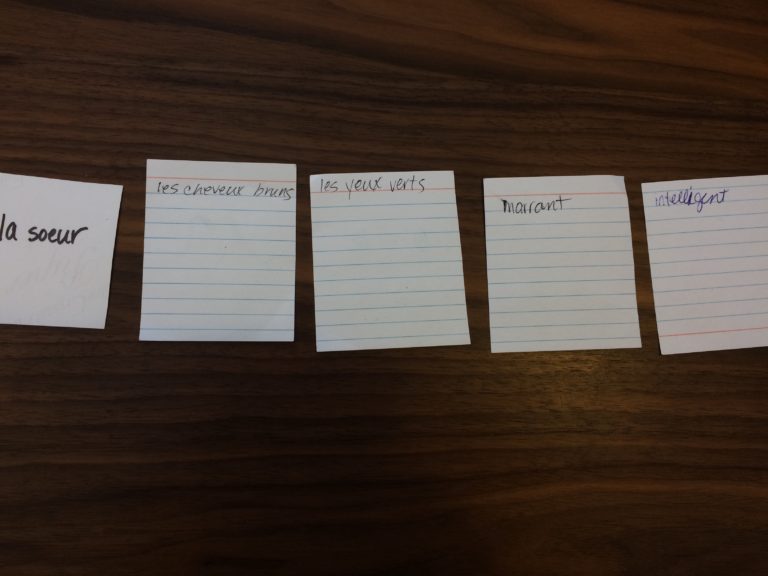
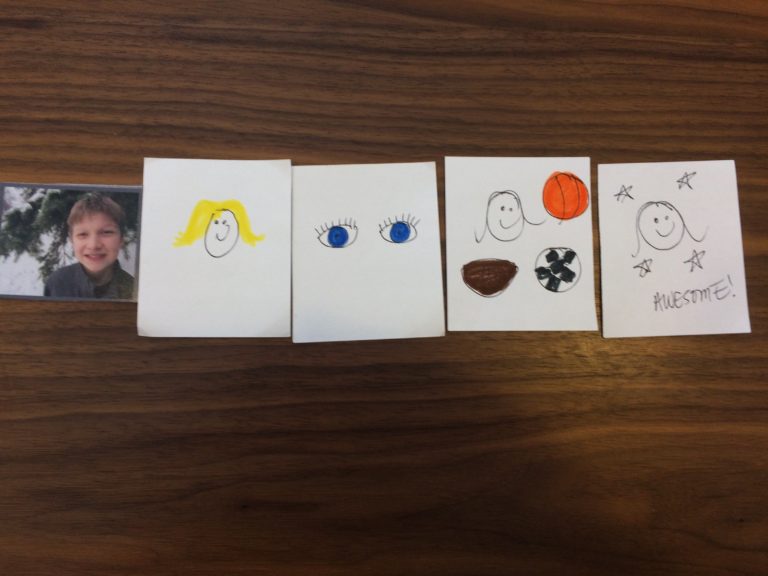
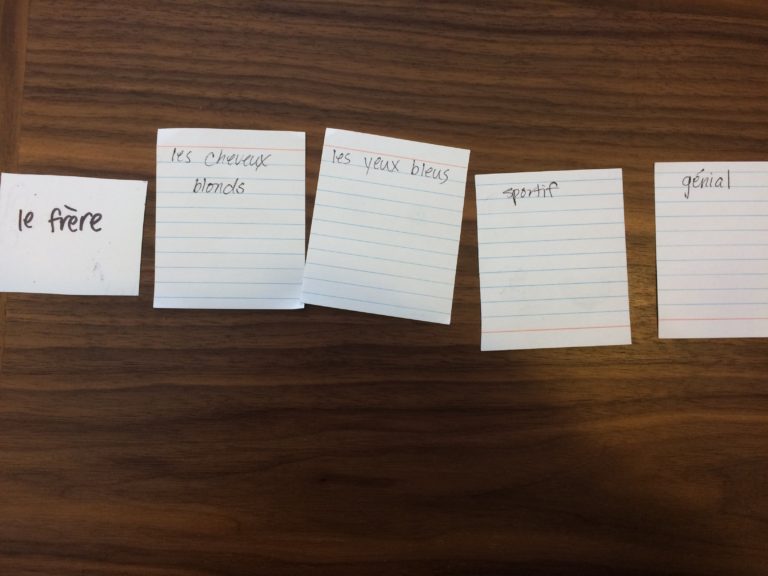
Which are the exact hopes and dreams I have for J.
While I was making dinner that night, I told Steve about how excited I was about the meeting I had with the French teacher. I talked about how proactive she was in thinking about accommodations, how she volunteered to make some extra assignments to help J WITHOUT SIGHING OR HESITATING. And then I started bawling. Because this is the first time a regular teacher has ever spent an hour and a half after school on their own time to try to find ways to help my child learn. Because she really cares about his learning.
French is an elective class for J. It’s not one of his core academic classes or one of those “important standardized testing and measurement” classes. But this teacher still felt teaching J how to learn was really important.
My heart is so full of gratitude this week for that teacher. I don’t know if she realizes the how much I appreciated that meeting. J may never be “successful” at French. He may struggle communicating in his Native language for the rest of his life. But that didn’t seem to matter to her—she wants to keep trying anyways. Autism doesn’t scare her off.
That my friends, is a golden moment.




